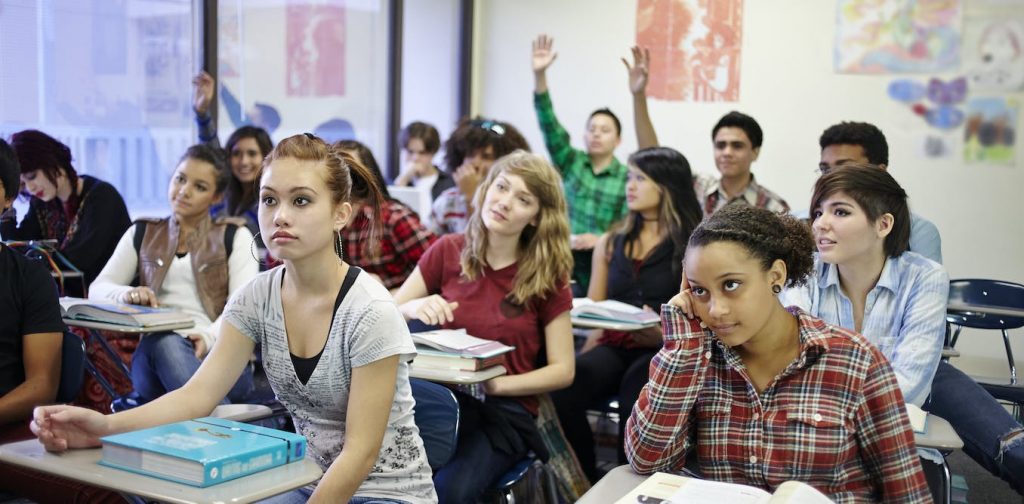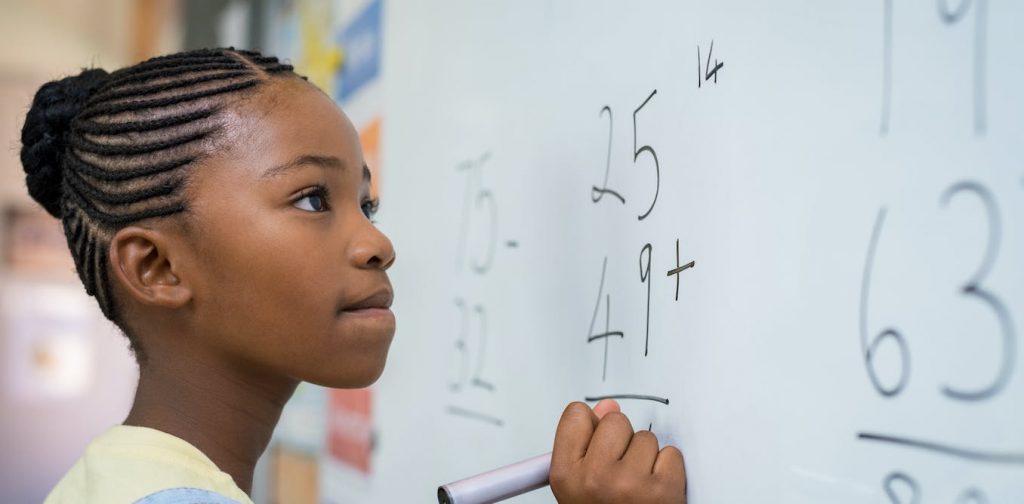COVID-19 hurt kids’ math learning more than reading and writing – with the biggest setbacks in fall 2020

The Research Brief is a short take about interesting academic work.
The big idea
The COVID-19 pandemic had a stark negative impact on students’ math scores, new data from Michigan shows. Math achievement growth over the three-year period from spring 2019 through spring 2022 was substantially lower – approximately 7 national percentiles – than among comparable students the three years prior.
There were even larger decreases among students who are Black or Latino, low income or who attended the majority of schools that taught remotely for at least part of the 2020-2021 academic year.
Effects on scores for English language arts, which include reading and writing, were small and generally not statistically significant.
To arrive at these findings, we looked at individual test scores and other data from Michigan.
First we looked at how math and English language arts test scores on Michigan’s annual statewide M-STEP exam grew between 2019 and 2022 for a group of students in third grade through fifth grade in spring 2019.
We compared these students’ test score growth with growth achieved by similar students who were in those same grades three years earlier, before the pandemic began. This provides us with a broad view of the impact of the pandemic on school learning as measured through test scores.
We also looked at scores from a series of benchmark tests taken between fall 2020 and spring 2022 to measure how achievement growth changed within each school year leading up to and following the height of the pandemic.
While other studies also show how the pandemic set back student achievement, our research looks at how achievement was affected over the course of the pandemic rather than just the end result. And the picture is pretty clear: Using a set of exams given at the beginning and end of each school year, we found a large drop in achievement between fall 2020 and spring 2021.
While student achievement began to improve in spring 2021, that recovery has been too slow to enable students to reach pre-pandemic expectations for test scores.
And, just as Black, Latino and low-income students suffered the largest drops in test scores during the pandemic, their math recovery has also slightly lagged behind white students and students who were more affluent.
Why it matters
This study adds to the research on how the pandemic appears to have exacerbated racial and economic achievement gaps. These gaps are important because lower achievement among disadvantaged groups could lead to lower college enrollment rates and, in turn, lower earnings.
What still isn’t known
Research is starting to show how quickly students are recovering and whether students are catching up at a rate fast enough to overcome pandemic learning disruptions. Some interventions, such as tutoring and after-school programming, are in place to attempt to speed up the recovery, but we do not yet know how effective they are.
We also don’t know for sure why there were disproportionate learning delays in math relative to English language arts. One possibility is that families found it easier to supplement reading instruction at home compared to math.
What’s next
Our next study looks at how the pandemic affected how students were identified for special education services. We are assessing how the inability to have in-person contact between teachers, school professionals and students made it harder to assess and serve students who might benefit from special education. Delays in access to these services could have substantially affected their academic, developmental and behavioral progress.




